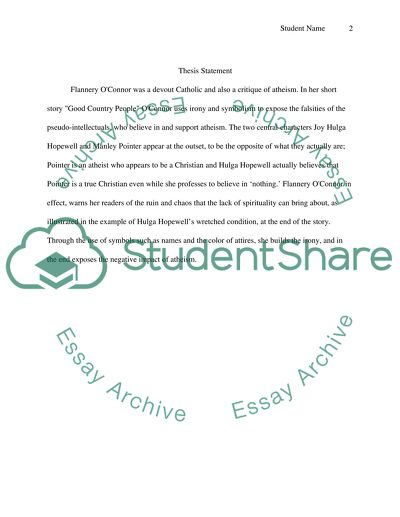Cite this document
(“Flannery O'Connors Good Country People Book Report/Review”, n.d.)
Flannery O'Connors Good Country People Book Report/Review. Retrieved from https://studentshare.org/miscellaneous/1510867-flannery-oconnors-good-country-people
Flannery O'Connors Good Country People Book Report/Review. Retrieved from https://studentshare.org/miscellaneous/1510867-flannery-oconnors-good-country-people
(Flannery O'Connors Good Country People Book Report/Review)
Flannery O'Connors Good Country People Book Report/Review. https://studentshare.org/miscellaneous/1510867-flannery-oconnors-good-country-people.
Flannery O'Connors Good Country People Book Report/Review. https://studentshare.org/miscellaneous/1510867-flannery-oconnors-good-country-people.
“Flannery O'Connors Good Country People Book Report/Review”, n.d. https://studentshare.org/miscellaneous/1510867-flannery-oconnors-good-country-people.


